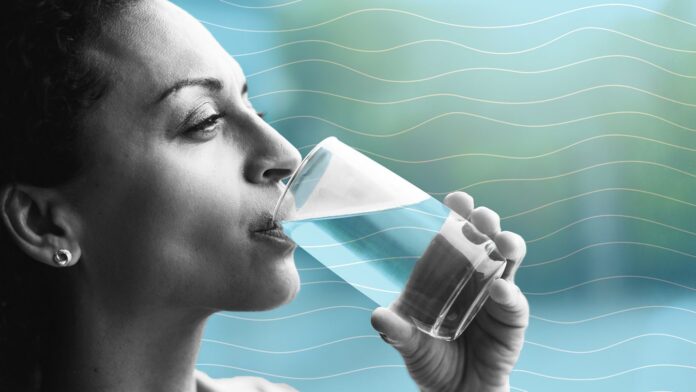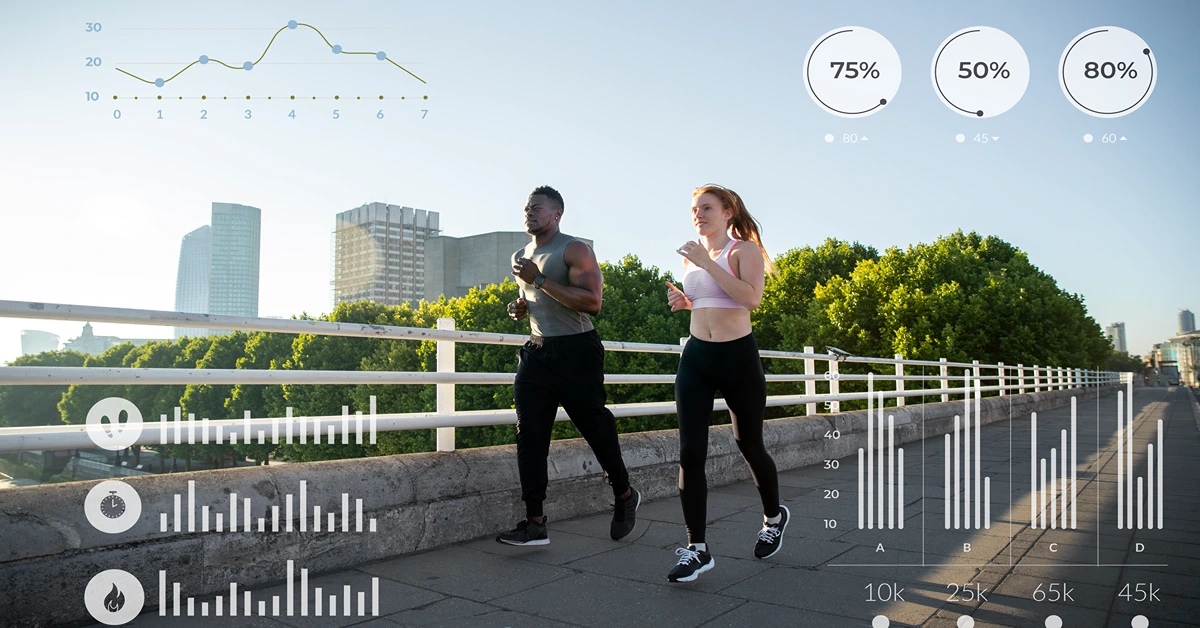Not drinking enough water due to busy schedules can lead to dehydration especially for people who live in warmer areas. Dehydration can be harmful to the body. Here are a couple of tests that you can do to judge whether you are dehydrated or not, but you need to know the symptoms first.
Symptoms of Dehydration
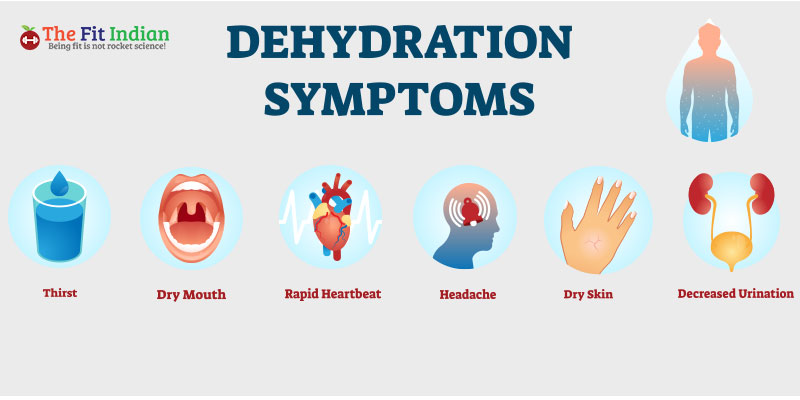
Source: The Fit Indian
- Skin
If you live in the warmer areas, it’s natural that your skin loses water due to sweating. If you live in cooler weather, you also lose moisture through skin because the air is drier. Either way, dehydration can show up on your skin through these symptoms:
- roughness or flaking
- flushing or redness
- cracked skin or lips
- cold or clammy skin
- tightening or shrinking (less plump skin)
- Dry mouth
Saliva is also an indicator whether your skin is in need of water and moisture. When your body doesn’t have enough water, your salivary glands can’t produce saliva resulting in your mouth feeling dry or sticky. Other than that, you may have trouble talking or swallowing, your throat sore, or your sense of taste has changed. You may also experience bad breath, as the lack of saliva will prevent bacteria from being washed away.
- Urine
The color as well as the frequency of which you urinate can show how dehydrated your body might be. Dark yellow to amber urine means you may have mild to severe dehydration, while you can tell the hydration levels if your urine if it is very light in color or even clear. The frequency to which you urinate may decrease along with dehydration.
- Constipation
When you feel constipation, it can be a sign that your body is experiencing dehydration as dehydration can cause or worsen constipation. Some signs you should watch out for include difficult or fewer bowel movements, and your stool may look dry or like small lumps. Water is needed to help digest food and move waste along your digestive tract. For that reason, you will need to drink plenty of water for regular bowel movements.
- Thirst and hunger
As soon as you feel thirst or hunger, it means that your body is already in the beginning stages of dehydration. You may also feel hungrier when you’re dehydrated. Medical research has also proven that adults who were dehydrated often had a higher body weight as they may feel more food cravings. Drinking water, on the other hand, can help reduce food cravings. Adults who weigh more also need more water to stay hydrated.
- Blood pressure
It may not seem like it, but blood pressure can indicate whether your body is dehydrated from water or not. If you notice that you are experiencing low blood pressure, this might mean that you need to drink water asap. The American Heart Association lists dehydration as a cause of low blood pressure, which is why drinking water helps balance blood pressure. The theory behind it is that 55 percent of your blood is liquid. Water loss can therefore lower your blood volume and affect blood pressure.
- Tiredness
A study has found that men who experience dehydration reported feeling fatigue, lethargy, and tiredness. Even though you are well rested, being dehydrated can cause you to feel tired. This result is perhaps due to low blood pressure caused by dehydration. Being properly hydrated helps raise energy levels.
- Headache
Mild dehydration can also be deduced if you experience headache. A study found that women being just 1.36 percent dehydrated experience headaches. This is because headache pain may be linked to low blood pressure due to water loss. The solution would be to drink water in order to raise blood pressure and ease symptoms.
- Nausea
Again, low blood pressure as a result of dehydration can cause symptoms such as nausea and dizziness. In extreme cases, the nausea may lead to vomiting. This makes you lose even more water, worsening symptoms.
- Fainting
If you are already severely dehydrated, fainting is something you may experience. Some symptoms you may feel include being lightheaded or fainting when you stand up suddenly after sitting or lying down. These symptoms may happen when dehydration lowers your blood volume and blood pressure.
- Heart effects
Another sign of severe dehydration can be felt in the heart. You may experience a quick breathing and fast heartbeat with a pounding heart. This is because water loss leads to lower blood volume, making the heart work harder to move blood throughout your body. Getting hydrated raises your blood volume and returns your heart rate to normal.
- Brain function
Your brain function will also be affected when you are dehydrated. As your brain is more than 70 percent water, a research on men in their 20s found that dehydration slows some types of brain function including alertness, concentration and memory. Participants of the experiment were noted to make more mistakes on vision and memory tests when they were dehydrated.
Not only that, but another study has even showed that slight dehydration can cause driving mistakes such as drifting across lanes and slowed reaction time while braking. The effects are even equated to people who are driving on legal alcohol limit (0.08 percent in the United States), or if you were driving while sleep deprived.
- Pain
Your pain tolerance is also affected if you are dehydrated. Medical research found that dehydration may make your brain more sensitive to pain. In a study consisting of men, they felt more pain activity in the brain when they were dehydrated than when they were given plenty of water to drink.
- Mood
Mood swings will tend to happen if you are dehydrated. Studies on both men and women found that dehydration made individuals feel anxious, tense, or depressed. Their mood was reported to be lower. For those who are experiencing signs of serious dehydration, mood changes such as confusion or irritability are shown to occur.
Dehydration Tests
Pinch your skin
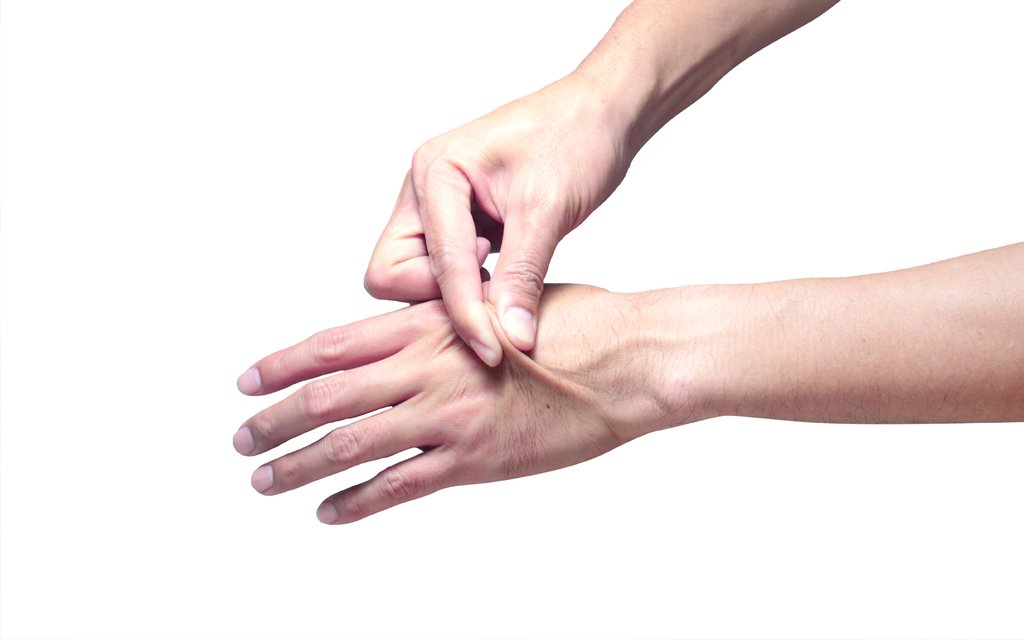
The first way to determine if your body is dehydrated is to pinch your skin. Take the skin on your knuckles and pinch it. If the skin goes down easily, then you are hydrated. If it takes a long time to go down, it means your skin is showing signs of dehydration. This is not the most robust way to catch dehydration, but it does work.
Nail capillary refill test
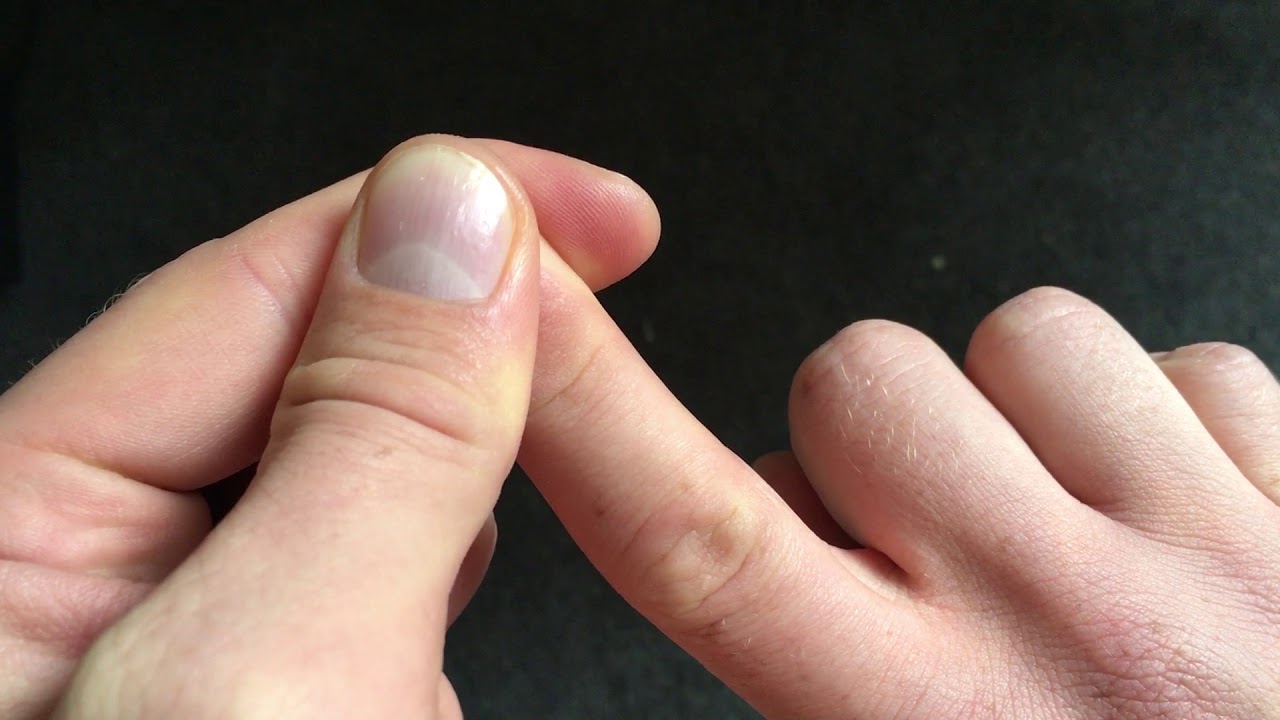
Another way to determine if your body is dehydrated is by pressing your nail beds. When putting force on your nail beds, it whitens as blood is forced out. Normally, blood returns in two seconds or less. However, if you are dehydrated, your nail beds will take longer for the area to return to a pink shade. To perform the test:
- Hold the testing hand above your heart.
- Press or pinch your nail bed until it turns white.
- Release the pressure.
- Count how many seconds it takes for color to return to your nail bed.

